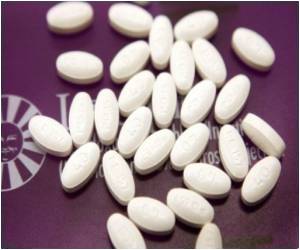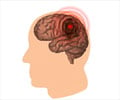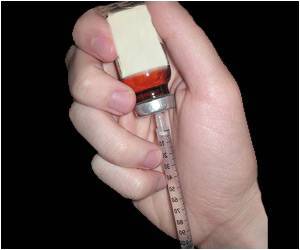Statin treatment for patients with a history of bleeding within the brain, may increase the risk of having another such stroke.

"Because intracerebral hemorrhage sufferers commonly have co-morbid [co-occurring] cardiovascular risk factors that would otherwise warrant cholesterol-lowering medication, it is important to weigh the risks and benefits of statin therapy in this population," write M. Brandon Westover, M.D., Ph.D., of Massachusetts General Hospital and Harvard Medical School, Boston, and colleagues. The researchers used a Markov decision model to evaluate these benefits and risks. Based on prior research, simulated patients were assigned to states that correspond to disease risk and could then experience any combination of events which may lead to the increased risk of stroke or heart disease, change in quality of life or death.
"Our analysis indicates that in settings of high recurrent intracerebral hemorrhage risk, avoiding statin therapy may be preferred," the authors write. "For lobar intracerebral hemorrhage [bleeding in the cerebrum] in particular, which has a substantially higher recurrence rate than does deep intracerebral hemorrhage, statin therapy is predicted to increase the baseline annual probability of recurrence from approximately 14 percent to approximately 22 percent, offsetting the cardiovascular benefits for both primary and secondary cardiovascular prevention."
In the case of deep intracerebral hemorrhage, a type of stroke due to bleeding deep within the brain that has a lower risk of recurrence, the benefits and risks of statin use were more evenly balanced. "Consequently, the optimal treatment option may vary with specific circumstances," the authors write.
The mechanism by which statins might increase the risk of hemorrhagic stroke are unknown, the authors note. The association may be due to an increased risk of brain bleeding among those with lower cholesterol levels, or potential anti-clotting properties of statins.
"In summary, mathematical decision analysis of the available data suggests that, because of the high risk of recurrent intracerebral hemorrhage in survivors of prior hemorrhagic stroke, even a small amplification of this risk by use of statins suffices to recommend that they should be avoided after intracerebral hemorrhage," the authors conclude. "In the absence of data from a randomized clinical trial (ideally comparing various agents and doses), the current model provides some guidance for clinicians facing this difficult decision."
Advertisement















